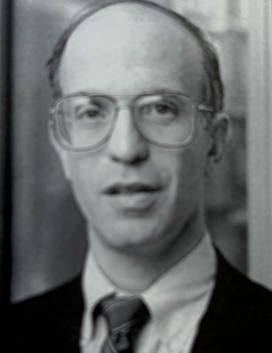Alan Blinder ’67, Crowe, and Lake Will Advise Clinton on Policies
The fledgling cabinet of President Clinton does not contain a single Princeton graduate. Not since the administration of John F. Kennedy (an erstwhile Tiger) have Princetonians been thus disfavored. The corridors of power were downright congested with Princeton alumni in 1987, when the “Big Three cabinet positions – state, treasure, and defense - were occupied by George P. Shultz ’42, James A. Baker III ’52, and Frank C. Carlucci ’52, and Paul A. Volcker ’49 was finishing his term as the chairman of the Federal Reserve Board.

A number of alumni have nevertheless assumed other important positions in the Clinton administration. Chief among them is Alan S. Blinder ’67, a professor of economics at Princeton, who is expected to be named to the President’s Council of Economic Advisers. Although his appointment had not been announced by press time, The New York Times reported on January 4th that Clinton had chosen Blinder for the panel, which counsel the President on economic policy.
An adviser to the presidential campaigns of both Clinton and Michael S. Dukakis, Blinder is one of the nation’s foremost macroeconomists. He writes a regular column in Business Week, coauthored a widely used textbook, and has written several recent books on economic policy, including Growing Together: An Alternative Economic Strategy for the 1990s (Whittle, 1991). At Clinton’s economic summit in December, Blinder criticized supply-side economics and advocated “trickle-up” government policies to raise productivity by improving the skills of American workers.
Macroeconomists use such techniques as mathematical formulas and computer models to predict how government policies and other factors will affect economic performance. Macroeconomists have often headed the C.E.A., but Clinton bucked convention by naming Laura D’Andrea Tyson, a Stanford professor who specializes in industrial and trade issues, as chairwoman. Pundits have interpreted Blinder’s expected appointment as an attempt to counter concern that Tyson lacks the customary background for the post. Blinder would be the third current member of the Princeton faculty to serve on the C.E.A., following David F. Bradford, a Bush appointee, and Burton G. Malkiel *64, who served under President Ford.
Clinton has already chosen two graduate alumni for foreign-policy posts. Anthony K. Lake *74, a professor of international relations at Mount Holyoke College, will be the new national-security adviser, and Admiral William J. Crowe, Jr. *65, who served as chairman of the Joint Chiefs of Staff under President Reagan, has been named to head the Foreign Intelligence Advisory Board. Lake, who received an M.P.A. and a Ph.D. from the Woodrow Wilson School, was Clinton’s top adviser on foreign policy during the campaign. In 1970, Lake resigned as Henry Kissinger’s deputy national-security adviser to protest the expansion of the Vietnam War into Cambodia. Recently, however, he has advocated American military intervention in Bosnia and Somalia. Crowe, who earned a doctorate in politics at Princeton, will be responsible for reviewing the functions of the C.I.A., among other things, in his new position.
This was originally published in the February 10, 1993 issue of PAW.











No responses yet